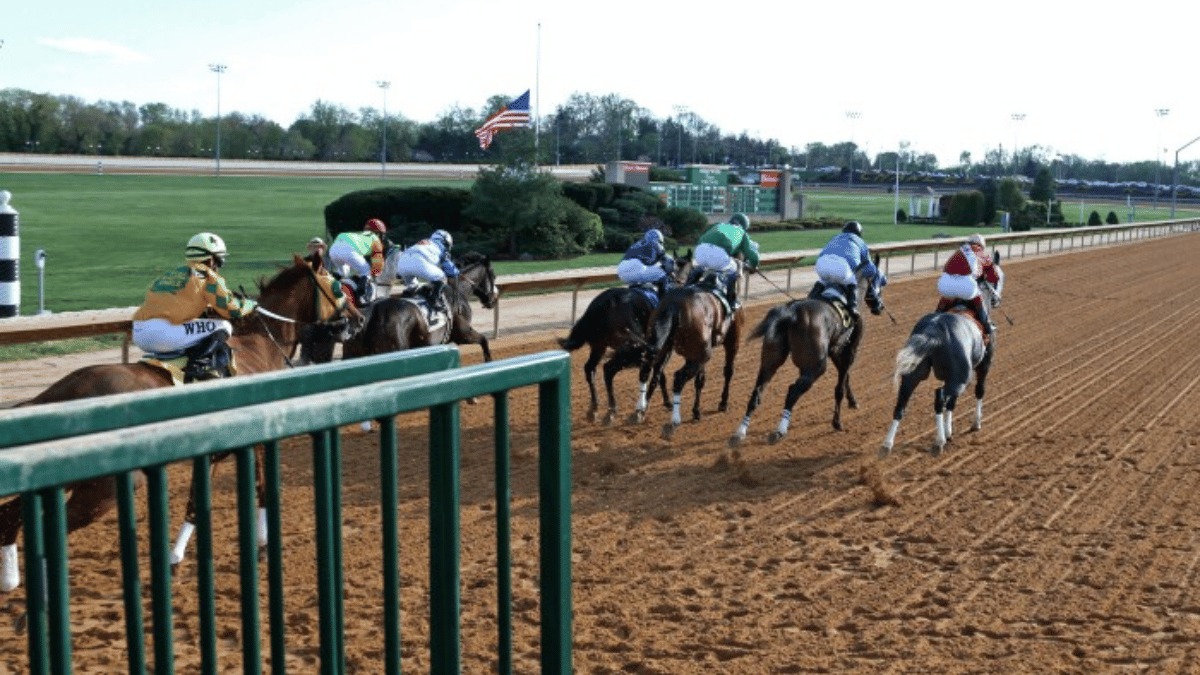The first African American woman licensed as a racehorse trainer in the United States learned her trade in West Virginia at the Charles Town Racetrack.
Author Vicky Moon explores the story in her new book, “Sylvia Rideoutt Bishop Had A Way With Horses: A Pioneering African American Woman’s Career Training Race Horses.” She is honored at an annual race at the Charles Town Racetrack called the “Sylvia Bishop Memorial Stakes Race.”
Moon spoke with Eric Douglas over Zoom about Bishop’s life and career.
This interview has been lightly edited for clarity.
Douglas: Tell me a little bit about Silvia. You got to know her fairly well in the last few months of her life. Tell me about the kind of person she was.
Moon: I met her in 2004, it was about August. By Christmas of that year, she died. We had every week together. I would go over and sit with her, and she would show me photographs of the horses that she had trained. We got along because I talk horse and she talks horse and I just don’t think very many writers would be able to do that. Not only that, maybe it was woman to woman, I can’t answer that. But we got along and we spoke the same language. She was, first of all, unassuming, but she didn’t mind telling me. “Oh, I was the first black woman in the United States to train racehorses.” Her greatest asset was that she wasn’t cocky about it at all. She remained a woman that you would meet on the street.
Douglas: Sylvia was really interesting because she’s African American and a woman and she started training thoroughbred racing horses in the 1930s.
Moon: The track opened in Charlestown in 1933 and she was born in 1920. So in 1934, at the age of 14, she went over there and started, as most people do, male or female, as a groom, a hot walker, cleaning the stalls, doing whatever, but taking it all in every minute.
Douglas: So she was breaking ground on two different levels in the horse business.
Moon: Absolutely, she was breaking ground. The greater challenge was as a woman. And that still exists today. I’ve calculated how many women trainers there have been recently at the track. In Charles Town there was about 10 percent on a Saturday night not too long ago. At Gulfstream, in Florida, on the same day, the percentage was six percent. I travel not just to Charles Town, but I spend winters in Florida. I go to Saratoga. Very rarely do you see a woman as a trainer. You see a woman as a groom, a hot walker, a pony rider, but not as a trainer.
Douglas: You made a great point in the early part of the book about her first connection with a pony, through a pony ride. The cover art of the book is a picture of her on a pony ride in the neighborhood. And that started her on this lifelong journey.
Moon: You know, I was so fascinated with that pony ride because evidently there’s others in the horse business, who can remember such a ride. A man would come around with his pony in the neighborhood, and it really wasn’t much of a ride, it was more of a “sit on the pony and get your picture taken for 25 cents.” And the fact that this photo survived was phenomenal.
Douglas: She went on to eventually become a trainer but she was also an owner. I was struck as much by the fact that she was owning these horses and buying and selling.
Moon: Yeah, I don’t think it was unusual for other people to do the same thing, because they have these claiming races where you put up money or whatever. One particular time, the horse was about done out, according to the owner, who was with Silvia. So she took the horse as her own. And then the horse started to win again.
The book “Sylvia Rideoutt Bishop Had a Way With Horses: A Pioneering African American Woman’s Career Training Race Horses” is available through Amazon.
This story is part of a series of interviews with authors from, or writing about, Appalachia.
